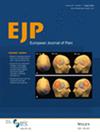The Impact of Smoking on Low Back Pain and Disability
Abstract
Background
Low back pain (LBP) is a predominant cause of disability, imposing a significant burden on healthcare systems and individuals' quality of life. The multifactorial nature of LBP encompasses various risk factors, but the association between smoking and LBP, particularly concerning severity and disability, has not been fully explored.
Methods
This study utilised a cross-sectional design with propensity score matching to analyse the relationship between smoking and LBP severity and associated disability among adults aged 18 to 64. We prospectively recruited individuals from the general public, assessing LBP severity and disability using the von Korff questionnaire and the Roland Morris Disability Scale (RMDS). Smoking status was classified as ‘yes’ or ‘no’ and further stratified by pack years (PY). Adjustments were made for age, sex, body mass index (BMI), alcohol consumption, physical activity, and depression.
Results
A total of 430 patients with a median age of 41 (IQR 31–53) were included in the analysis, with 79 (18.4%) being active smokers. In the propensity score-matched analysis, individuals with 0 to < 10 PY did not show a significant increase in pain-related outcomes, whereas those with ≥ 10 PY exhibited a significant increase in pain severity (p = 0.043), disability score (p = 0.001), and RMDS score (p = 0.015). Multivariable linear regression further confirmed a significant association between PY and LBP-related outcomes, whereas smoking status alone was not significant.
Conclusions
This study shows an independent effect of smoking on disability and pain severity, underscoring the potential importance of smoking cessation in LBP management.
Significance Statement
This study identified a dose–response relationship between smoking and increased low back pain (LBP) severity and disability, particularly among individuals with ≥ 10 pack years, strengthened by the robust propensity score-matched design. By highlighting the independent effect of smoking on pain and disability, these findings emphasise the role of Smoking in the development of LBP and the potential importance of smoking cessation as a critical component in managing LBP.

 求助内容:
求助内容: 应助结果提醒方式:
应助结果提醒方式:


